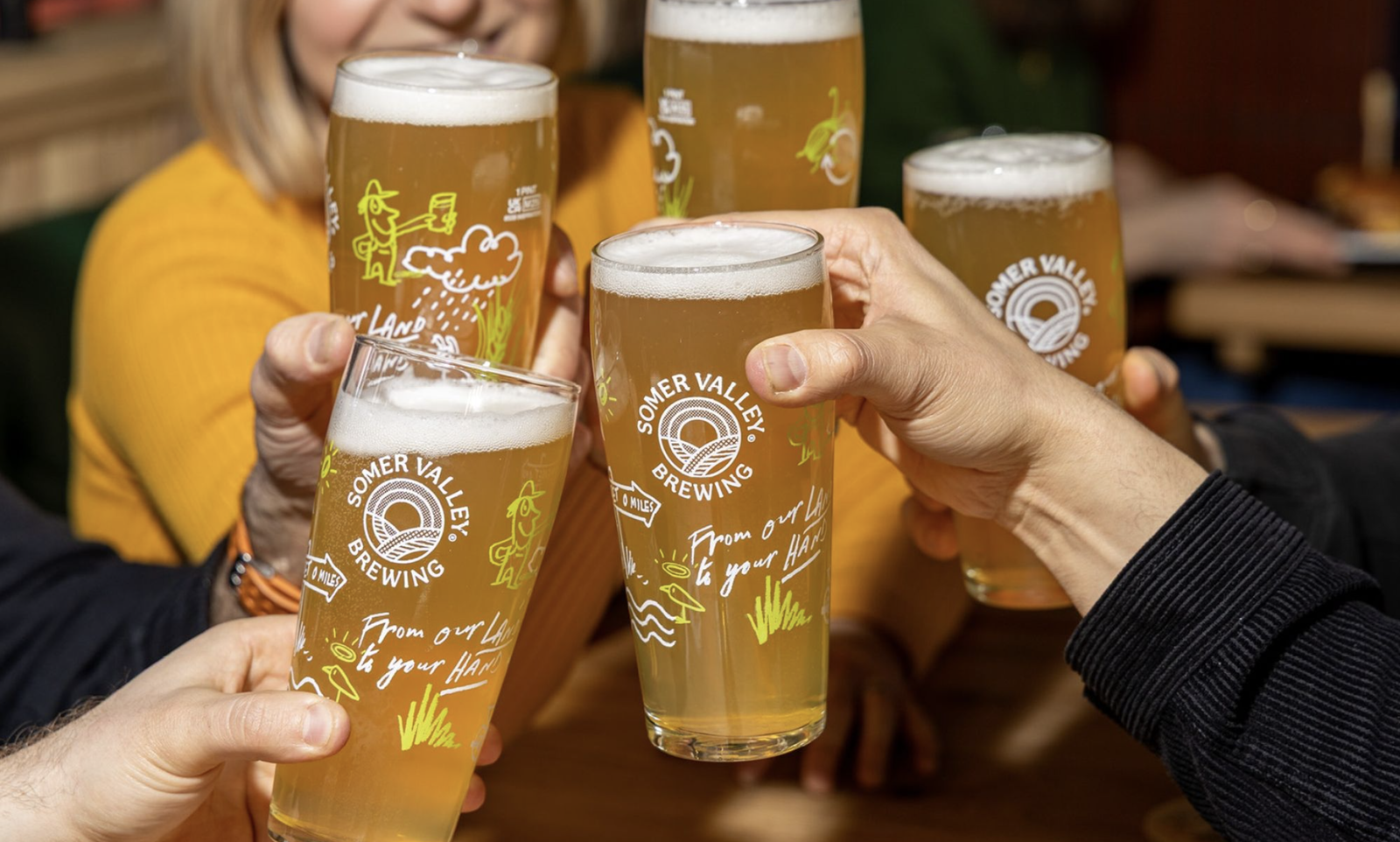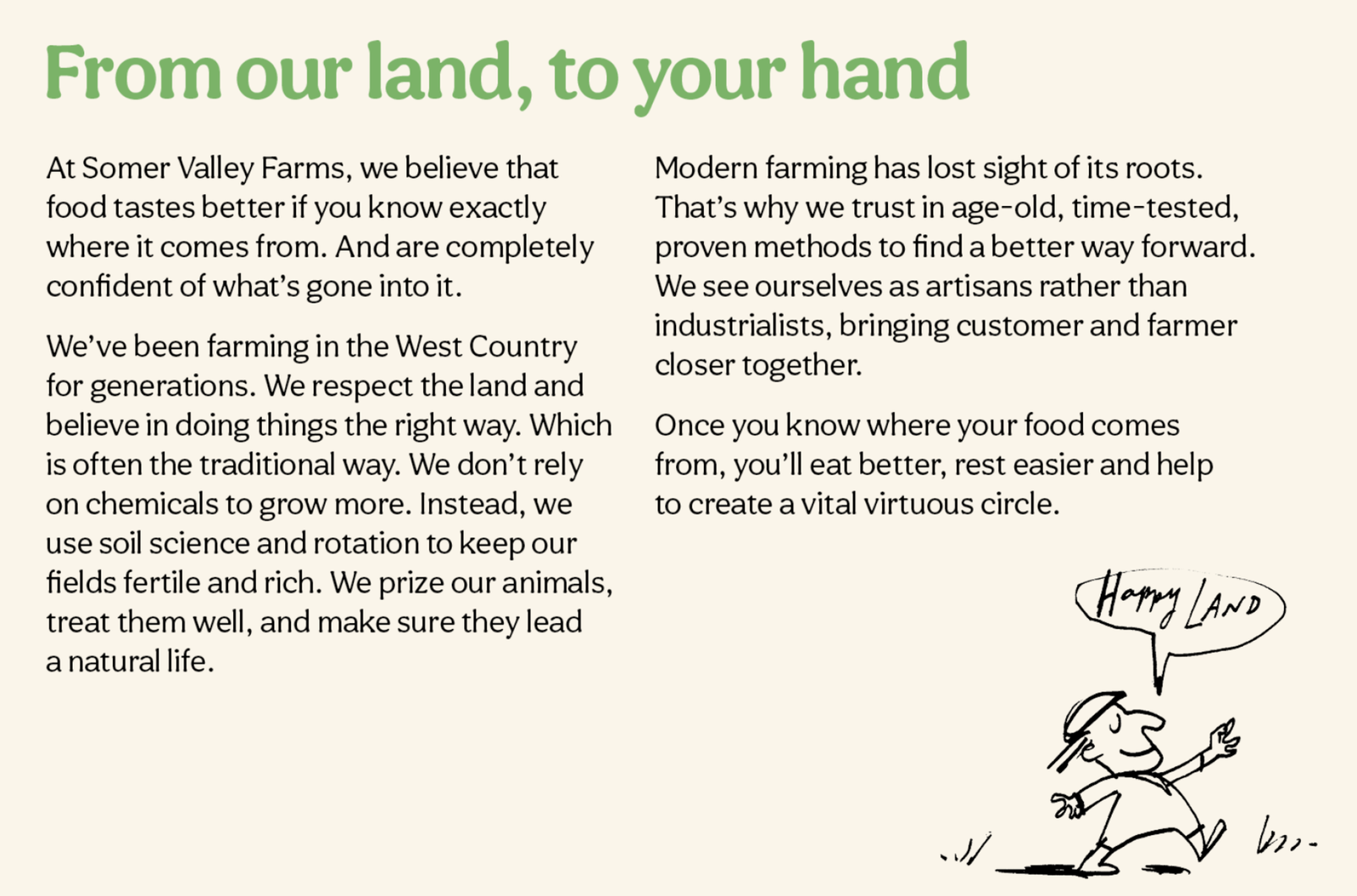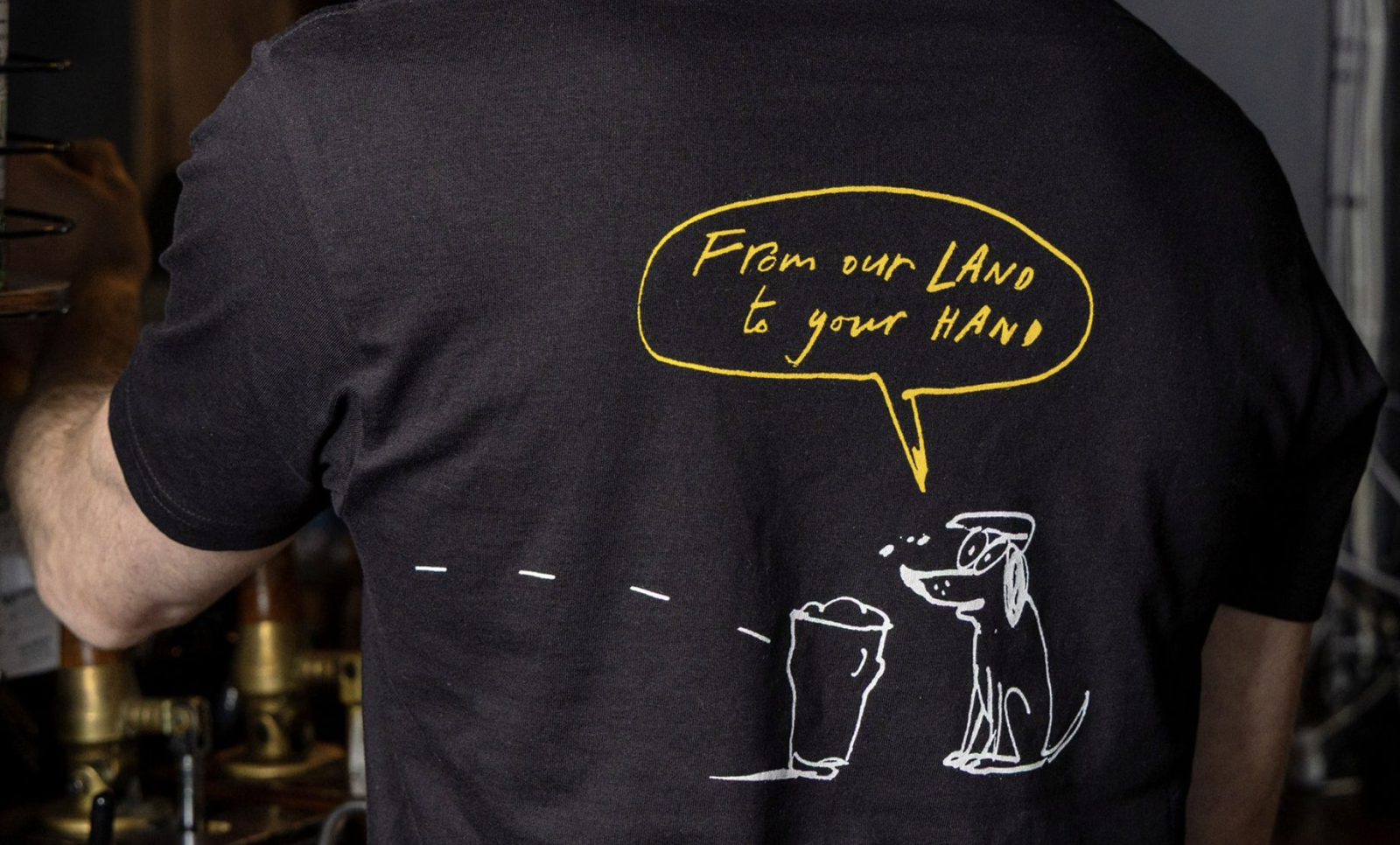From our land to your hand.
When a client asks if they can trademark a line you came up with, you must be doing something right.
The line was ‘from our land to your hand’, and the client was Somer Valley Brewing.
This was one of those projects where the chemistry fizzed and everything just clicked (or should that be clinked?). I’d go so far as to say it was one of the most fulfilling collaborative projects we’ve been involved in for many a year.
Somer Valley near Bath is run by third-generation farmer Chris Watt, a man with fascinating, forthright views on farming and the provenance of food and drink.
And when it comes to brewing craft beer, Chris & Co do it right. They grow their own barley using age-old rotational cropping techniques alongside a happy herd of heritage cows. Which means the soil is rich and teeming with goodness.
Once harvested, the barley makes a short trip down the A36 to be floor malted the traditional way in nearby Warminster. The beer miles are negligible, and the barley is as fresh as fresh as can be. Somer Valley even have their own bore hole for water — so the ingredients are about as local as it gets.
Our long-term collaborators Supple totally bossed the branding. With so much of the brewing process happening on the farm, they decided the brand assets should be rooted there too — literally. Working with friend and collaborator Simon Spilsbury, the team printed, rubbed and inked everything from hay bales to tractor wheels, to create a suite of farmyard textures.
Then, super-talented illustrator Spilsbury created quirky, engaging farm-based-line drawings that brought the distinctive visual language to life with wit and charm.
We dug in and created a step-by-step template for on-pack copy, along with key messages and long and short brand stories.
In a hugely saturated market, Somer Valley’s branding and packaging stands out from the madding crowd. It feels authentic and down to earth, perfectly reflecting the spirit and provenance of the beer.
One of my earlier earlier attempts at a strapline was ‘from our farm to your arm’. But somehow, I think ‘from our land to your hand’ is the phrase juste.


